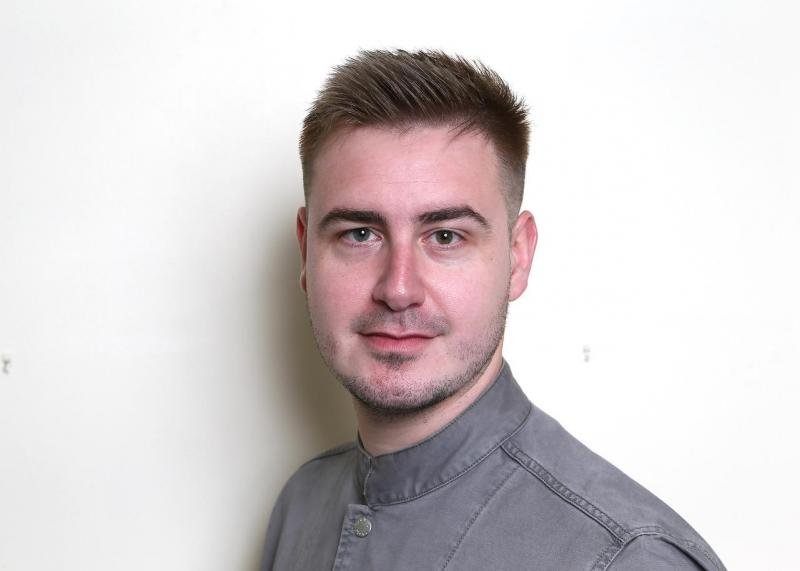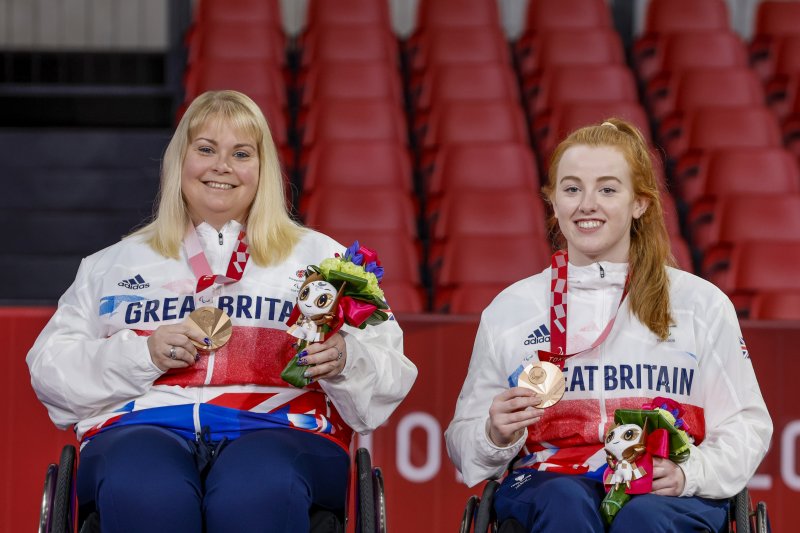SUE BAILEY is hoping her first Paralympic medal, at her sixth attempt, will inspire youngsters just as she inspired Tokyo table tennis doubles partner Megan Shackleton 13 years ago.
Shackleton, from Todmorden, was recovering in 2008 at Northern General Hospital from an accident which fractured her spine aged nine when she saw Bailey preparing for the Beijing games at a table in the hospital where she trained.
That inspired Megan to take up the sport and, last week, she won bronze alongside Dodworth woman Sue in the team event at the Tokyo Paralympics.
Bailey, 48, said: “I didn’t know until we were in Tokyo that Megan used to watch me training through a little window in her ward.
“That got her into table tennis and now we’ve won the Paralympics together. It makes me really proud.
“The numbers are dipping in disability sport, particularly table tennis, so if we can inspire anybody else that would be amazing.
“I am just thrilled. It has been such a long time coming.
“I don’t think people realise the level you play at at the Paralympics.
“They are all great players so to achieve anything there means so much.
“We have all put so much effort in to even get to the Paralympics.”
Sue flew home on Tuesday but, from Wednesday, was already working from home and will start teaching at Shawlands School again from Monday.
“It will be really nice to take that medal in and show children that, with determination and belief, you can achieve your dreams, so never give up.”
She was delighted to win a medal under her father’s name Bailey and for her hometown of Barnsley, along with basketball bronze medalist Ian Sagar from Hoyland.
She said: “It’s my first time competing in that name which made it even more special. My parents both played table tennis in the local leagues so I got into it. When I went into a wheelchair, they inspired me to keep going and learn to play again.
“There are only a couple of us from Barnsley. I saw Ian around the GB base. It’s so nice to represent Barnsley at the Paralympics and for both of us to bring back medals.”
Bailey – who has Ehlers-Danlos Syndrome which causes her joints to dislocate about 100 times per day including during games – can now add a Paralympic medal to her Commonwealth, world and European collection.
She is determined to compete in more major events and has not ruled out a seventh Paralympics in Paris in 2024.
“I have completed it now but I do feel that I am playing very well and myself and Megan are doing very well as a team.
“Next year there is a World Championships and Commonwealth Games in Birmingham, so I will compete there if selected.
“Paris is only three years away and Megan wants me to do that with her because we’ll have a really good chance of another medal.
“There should be better preparation for that because it’s been very difficult with Covid.
“I haven’t made a decision on Paris but I am certainly not ready to stop yet.”
The road to bronze in Tokyo was not smooth for Sue. She was playing in a chair that was damaged on the flight to the qualifying tournament earlier this year and then did not make it through the group in the individual event.
“I was 5-1 up against the Paralympic champion and playing really well but the referee kept giving points against me for my serve.
“I knew they were good serves, it’s one of the strengths of my game.
“But he destroyed my chances in the singles because he umpired both my games and it completely threw me.
“I was extremely disappointed after five years of hard work.
“He did the same to a lot of other players and a lot of countries complained then he was eventually removed.”
Sue then paired up with Shackleton to beat a Jordanian team in their quarter-final and secure a medal.
They lost the doubles match but both won their singles.
They then lost to China in the semi-final but, unlike five years ago in Rio where Sue lost a bronze medal match, both losing semi-finalists get bronze.
She said: “We were playing up a disability class, we are class four and the teams we played were class five.
“I played the last game against Jordan so it was very nerve-racking, stressful and the pressure was on.
“It was all down to me. I was trying to ignore what the game actually meant. I won the first game and was wheeling away then the Jordan coach said my shot had missed which it hadn’t, we’ve seen on replays, but the umpires ruled against me.
“I ended up losing that game which threw me and it took a lot to come back from. But eventually I won quite convincingly and it was a great feeling.”
The games were organised with Covid-19 restrictions and no supporters.
“The village was fantastic and so were the venues. The Japanese organisers were excellent, and so were the GB staff who supported us.
“It was very difficult competing without fans.
“At first the other athletes couldn’t attend and support but thankfully that rule was changed.
“GB won seven table tennis medals which is the most ever.
“The testing was very, very strict, from the beginning of August in the UK then in Tokyo we were tested every day.
“The hardest thing was wearing masks 18 hours a day – even outside.
“But obviously it was to keep everyone safe and they did an amazing job of it.”


























